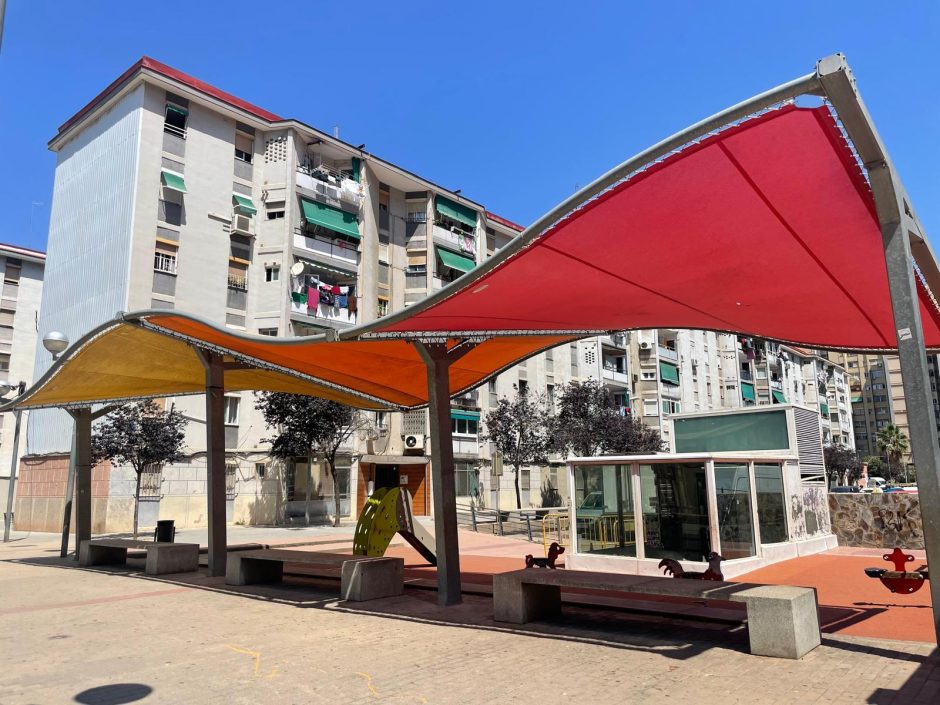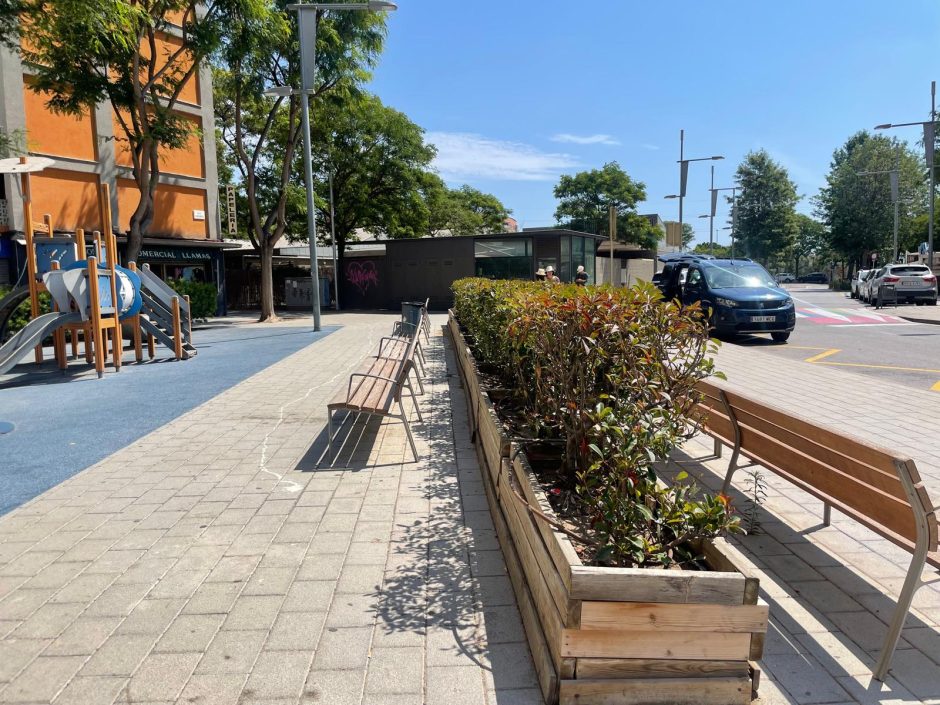Cornellà, Spain: Pioneering ‘Climate Itineraries’ to facilitate a cooler future

During hot summer days, residents of Cornellà de Llobregat – part of Barcelona’s metropolitan area – can struggle to access critical community services such as schools, sports facilities and parks. This is due to thermal discomfort experienced during high temperatures, which impacts residents’ mobility choices and leads to an increasing reliance on private vehicles.
With climate projections indicating an increase in extreme heat, the Cornellà municipality wanted to ensure the city’s services and facilities remain easily accessible under all weather conditions. The ‘Climate Itineraries’ project addresses these challenges by establishing green mobility corridors and reimagining the landscape. This includes enhancing connections between schools, business zones, and residential areas, as well as redesigning streets to incorporate more vegetation.
This is one of five projects selected for the Sustainable Cities Mobility Challenge, coordinated by Climate KIC and funded for the second year through the Charities Aid Foundation (CAF) America via a grant from FedEx.
“We created an urban strategy for climate adaptation because we really wanted residents to use more sustainable mobility modes without risking their health on hotter days. We are experimenting with prototypes for buildings and open spaces that include best practices for climate and heat adaptation,” says Mattia Federico Leone, Professor of Building Technologies and Environmental Design at the University of Naples. Mattia is also Co-Director of the Urban Climate Change Research Network (UCCRN) European Hub and both organisations are collaborating with the municipality of Cornellà on this project.
The Climate Itineraries project is focused on the district of Sant Ildefons, one of the five most vulnerable districts in the entire Metropolitan Area of Barcelona. This compact, concrete-dominated neighborhood suffers from a severe lack of green space and thermal insulation, with its aging buildings worsening the situation.

Greening in a children’s playground in Cornellà de Llobregat.
Critical infrastructure has been mapped to pinpoint where mobility corridors could be created. Meanwhile, residents have engaged in a ‘walking tour’ approach to share their mobility preferences, how heat affects their behavioural patterns and listen to proposals for adaptation measures. They expressed a desire for more water fountains and shaded benches located in the neighbourhood.
Residents have already felt a positive impact from the small-scale actions undertaken by the City of Cornellà in the last two years such as pavement removal and urban greening. “The redesign of these spaces has reinforced the sense of community that has always been prevalent in Sant Ildefons. The district is now better equipped during warmer periods and there are more opportunities to mix socially, which improves residents’ quality of life and contributes to the growth of what has always been an interesting melting pot in Cornellà,” says Mattia Federico Leone.
The next step is to provide advanced landscaping concept designs, based on input from a range of local stakeholders, to optimise urban greening and mobility interventions in targeted areas. The concepts and measures will be supported by a set of simulations developed through the Urban Climate Change Research Network UCCRN tools to assess their effectiveness with respect to current and future heat stress. These proposed interventions—from small-scale actions to a complete climate-resilient redevelopment of streetscapes and public spaces—are poised to reduce Urban Heat Island conditions, improve outdoor and indoor climate shelters and deliver multiple socio-economic and environmental co-benefits to the local community.
The implementation of the project will cover the initial step of the suggested phasing of interventions. In the future, Cornellà hopes to scale up this project and replicate it across the district – and beyond. “In this municipality, we are really seeing a potential for it becoming a best practice case for many small and medium-sized cities in Europe which are part of larger metropolitan areas,” says Mattia Federico Leone.
Climate KIC is committed to helping transform over 400 cities into thriving, climate-resilient communities. Our collaboration with FedEx shows what is possible when corporations, city officials and citizens come together to unite for a common purpose. The success of the Challenge demonstrates the transformative power of public-private partnerships in reimagining urban mobility.
To learn more about the other participating cities, click the button below.
